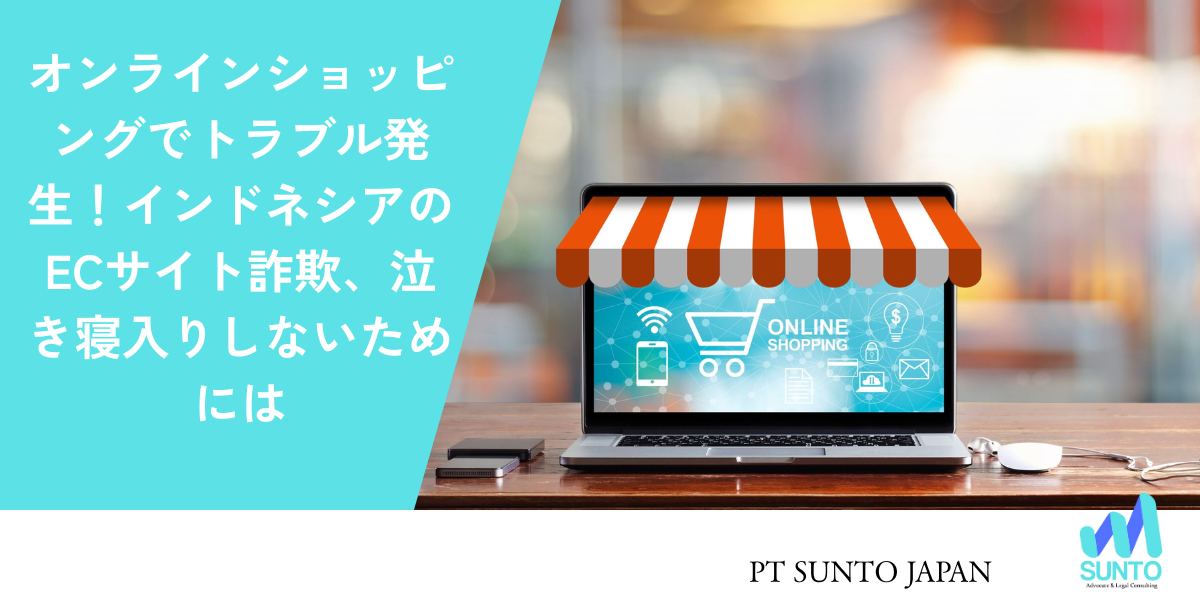
Online shopping in Indonesia is incredibly convenient, but unfortunately, it often comes with a number of problems. One common issue faced by many Japanese is fraud on Indonesian e-commerce sites.
“The item never arrived,” “I received a fake item”… When this happens, do you just give up, thinking “Oh well, it’s from overseas”?
Before you give up and accept your loss, we'll explain the specific steps you should take right now, step by step. For information about safe e-commerce sites in Indonesia, please click here
Step 1: Collect and thoroughly document evidence
• STransaction history screenshots:
Purchased product page, price, product description, seller information (store name, rating), payment confirmation screen, order confirmation screen.
• Communication with the seller:
All conversations and message exchanges within the e-commerce site, WhatsApp message exchanges, or external emails (if applicable).
• Logistics information:
Tracking number (receipt number) and screenshot of the logistics company's tracking page. If "Shipping complete" is displayed but you haven't received the item, note this.
• Photo/video of the item received:
Photo or video of the condition of the packaging (before opening). Photos or videos showing the entire item shipped, including close-ups of any parts that indicate counterfeit items (logos, textures, etc.).
Please ensure all this information is recorded and saved, along with the date and time.
Step 2: Use the e-commerce site's dispute resolution system

Large e-commerce sites in Indonesia (such as Tokopedia and Shopee) always have systems designed to protect buyers. Take full advantage of these systems.
• Request for ‘Order Cancellation’ or ‘Return and Refund’:
Submit a ‘Cancellation’, ‘Return’, or ‘Refund’ request for the order in question through the e-commerce platform’s app or website. Attach the evidence gathered in Step 1 at this time.
• Contact the e-commerce site’s customer service:
If the issue cannot be resolved through communication with the seller, contact the e-commerce site’s customer service directly. Although Japanese language support may not be available, use a translation tool to explain the situation concisely and clearly.
At this stage, the e-commerce site acts as an intermediary, facilitating contact with the seller and processing the refund. Most cases are resolved at this stage.
Step 3: Request a chargeback from your credit card company
If the issue cannot be resolved through the e-commerce site's system, depending on the payment method used, you can request a chargeback as a last resort.
What is a chargeback?
o This is a mechanism to retroactively cancel a credit card transaction and reverse the payment.
o By explaining the circumstances to the credit card company, you may be able to obtain a refund for reasons such as "fraudulent activity" or "non-delivery of goods."
This procedure varies depending on the credit card company. Please call the phone number listed on the back of your card, state that you wish to request a chargeback, and confirm the specific steps involved.
Step 4: Consult with the Authorized Party (BPSK)
If the issue remains unresolved after these steps, consider consulting with the BPSK (Consumer Dispute Resolution Agency), a government agency specifically handling dispute resolution between consumers and businesses in Indonesia.
What is BPSK?
This is an organization that resolves disputes through discussions between the parties (mediation or arbitration) without involving the courts. In principle, there are no costs associated with this procedure. BPSK regulations may refer to consumer protection laws, or more specifically, the provisions of Minister of Trade Regulation Number 72 of 2020 concerning BPSK.
When does this apply?
For small disputes where you want to minimize the time and costs of legal proceedings. When the other party is a large company or organization, and the involvement of public authorities can facilitate resolution. However, this procedure requires the preparation of documents and correspondence in the local language (Indonesian). This is the website where you can start the process.
When Should You Consult an Expert?

If you encounter situations such as "language barriers," "too busy with your main job to handle the procedures yourself," or "the other party is being inflexible and negotiations have stalled," consider consulting an expert without forcing the issue.
Law firms like ours in Indonesia specialize in providing legal support for Japanese companies and individuals operating in Indonesia.
• Peace of mind from being able to consult in Japanese
• On-site negotiations, document preparation, and handling procedures with government agencies.
• Support in filing criminal reports with the police in cases of particularly serious fraudulent activity.
E-commerce fraud in Indonesia can happen to anyone. By taking the right steps and not giving up, you can minimize your losses.
If you feel unable to handle this situation on your own, please contact us at any time.
(Disclaimer) This blog article is for general informational purposes only and is not intended as legal advice. For specific cases, please consult a professional.